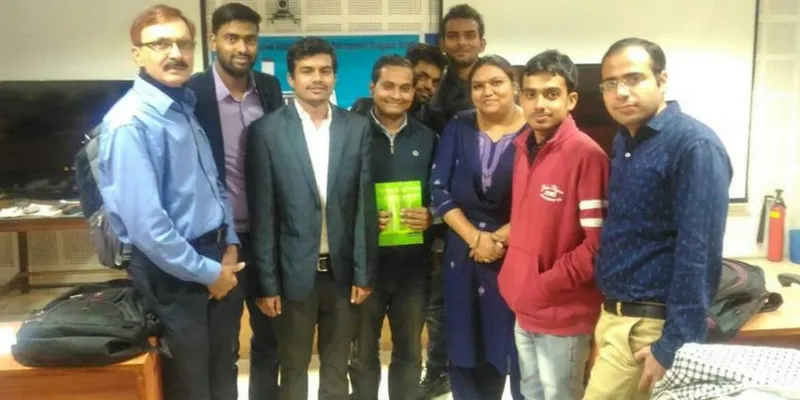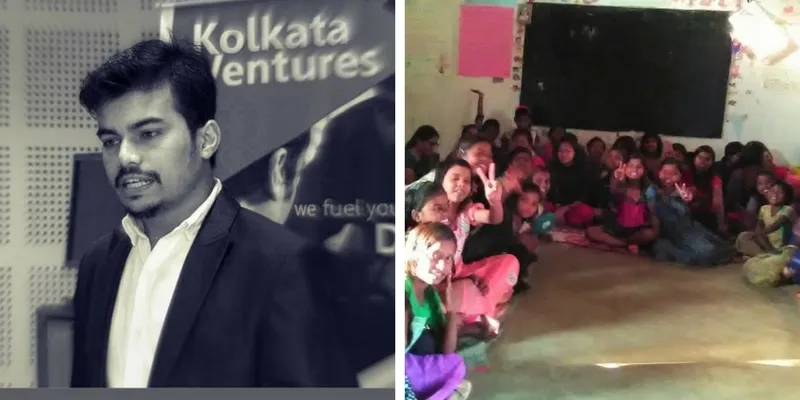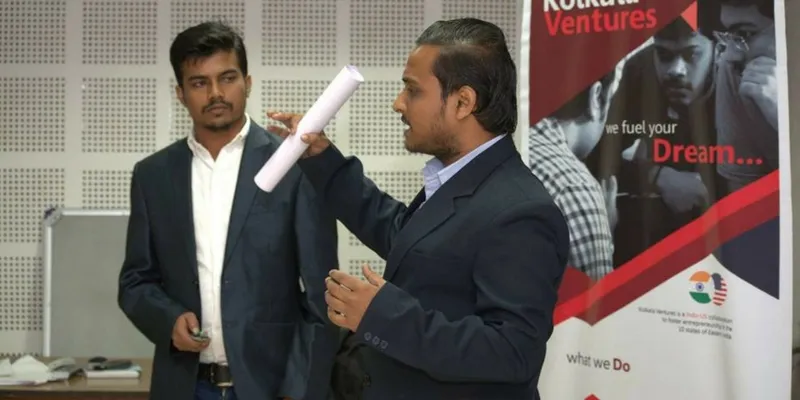This self-taught 21-year-old has brought education to 10 villages and entrepreneurship to its women
Ranjan Mistry, a college dropout, started an organisation that strives for socio-economic development in Bihar, and ‘startup city’ where entrepreneurs can thrive through co-dependence.

Ranjan Mistry firmly believes that Bihar has unexplored potential for startups and is making efforts to bring a change in this scenario through the education sector with an underlying theme of environmental protection.
How it all started
Ranjan’s connection with teaching started when he started teaching primary school children while he was in standard six. In standard 10, to further his interest in teaching, he joined a voluntary programme started by BIT Patna students where they taught slum kids. Ranjan taught them for three years, until he reached standard 12, after which he took up a computer science course at IGNOU.
In 2015, he dropped out from college since he was losing interest in classes and got selected for a sponsored two-month entrepreneurship programme at IIT-Kharagpur. In the same year,the Bihar Industry Association (BIA) organised an event called ‘Startup Bihar’, which he read about in the newspaper. “At this time, I didn’t know what a startup is and I only knew that I wanted to do something in the education sector. I connected with the speakers before the conference and laid down the foundation for my networking,” he said.
Patna is the third most polluted city in India and ranks sixth in the world; hence, there is no doubt that some form of environmental relief is required. Ranjan’s first campaign started out as ‘Plant for Bihar’ during Diwali 2016, where he talked to plant vendors across the city and encouraged them to give their product at a discounted price to encourage sale among potential buyers.
This led to the plantation of over 2,000 trees in the city, where 1,200 were planted by the residents and 800 were planted by Ranjan and his team.
Plant Eco Circle and its programmes
Ranjan decided to start Plant Eco Circle in October 2016 with the aim of empowering villagers through educational impact and making them a contributor towards protecting the environment. “I wanted to centre my efforts towards the villages since I am from Gaya, and there is a severe dearth of good quality schools in these areas. I wanted to combine this with something positive for the environment as well,” he said.
Two months back, when he visited the children in Gaya and asked them why they weren’t going to school, they mentioned that the teachers only came once or twice a month. “I had a newspaper in my hand and started teaching those bunch of kids there and then. In half an hour, I was surrounded by about 30 students and the teaching session went on for about three hours,” he rejoiced.
Post this, he started work on a programme called “Education in my Village,” where qualified teachers are hired and their salaries are arranged by Plant Eco Circle. “The challenge is that no one wants to run a school in these areas,” he added.

Ranjan has so far been able to help 10 such villages. Plant Eco Circle is looking at creating a youth led movement, where bright and able individuals will come together to provide quality education to under privileged students, help under resourced schools, and encourage women in these villages to take up entrepreneurship.
Under another programme called "Entrepreneurship in my Village," women working with Jeevika and self-help groups are made aware about entrepreneurship and introduced to methods through which they can expand the market for their products like pickles and incense sticks.
The finances for these programmes come from CSR activities and the human resource help is provided by Jeevika. However, networking and finances pose a constant challenge.
Code for Village and Startup City
Ranjan took over the task of teaching coding to the village kids with, “Code for Village.”“I have never attended a computer class, but still know seven computer languages that I learnt myself,” said Ranjan, setting the foundation to his answer on how he took the challenging task of teaching something technical to kids who had not dealt with computers before. “I gave these children an introduction to Microsoft, followed by classes on HTML,” he added.
Since one of the biggest challenges Ranjan faces is that of having no support from the government in terms of encouraging a thriving atmosphere for startups, he initiated,“Startup City.” “No one wants to donate to a person from Bihar. It is important to change this perception of the state,” he said. Startup City is a group of 17 startups from Bihar working in the field of robotics, information technology, and the food sector. “This ecosystem ensures that we are able to help each other. Say, I am organising an event for which I need some human resource. I can’t afford to pay people for help, so in such cases we take each other’s help,” Ranjan added.
Future plans
Ranjan plans to approach the municipality to leave half feet of space on either side of the roads being built in the residential colonies of Patna. Post this, a plantation drive will be conducted where the house owners can choose to purchase the plantation.
I conducted a survey where I asked people if they would invest in taking care of the plants and got a positive response. It is important that the plants are sold to the owners because people care about something when they have spent their own money on it, he added.

Ranjan got selected to attend the Asia-Pacific Youth Exchange programme happening in Manila in July this year, where over 150 delegates will discuss and solve the Sustainable Development Goals. He is trying to raise funds for his travel and fees, which amount to Rs92,000. He sees little hope in the crowdfunding campaign being successful but already has an alternative plan of action. “There is a clear trade-off between investing in myself and using the same money towards educating more children. At the moment, I’d rather take a loan to further my interests in my startup than to invest in myself. Revenue is important,”Ranjan adds.








